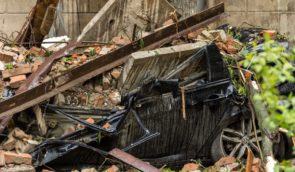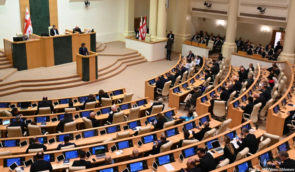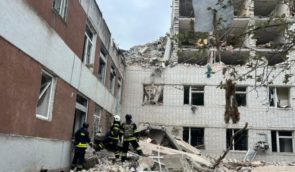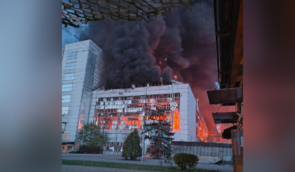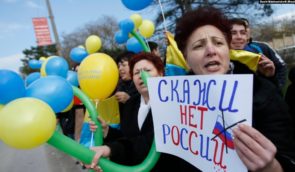Crimean Khersones may lose exhibits, property, archives
The reserve’s department, which has powers to prohibit construction in the territory of historic monuments, may be closed.
As the Human Rights Information Center correspondent reports, the experts point out that another problem of the occupation of Crimea apart from prosecution of activists, disappearances, violation of the rights of the Crimean Tatars, is the attitude of the occupation authorities to the cultural heritage of the peninsula.
The situation in the Khersones reserve is not stable, says the candidate of historical sciences, associate professor of the History of Ukraine Department of the Hrinchenko University of Kyiv Maryna Budzar.
“January 21, 2015, Khersones reserve was transferred into the state cultural institution “History of Sevastopol Combined Museum and Reserve.” This reserve included completely different museums of Sevastopol, in particular, the National Museum of Heroic Defense, which, as we know, has nothing in common with the Khersones. March 6, this decision was repealed, and the Khersones regained the independent status,” the expert said.
Budzar notes that Governor of Sevastopol Sergey Miniaylo appointed Archpriest Sergei Khalyuta as director of the reserve on July 29. However, the appointment was canceled following the resistance of scientists and the public reaction.
Later, Russian President Vladimir Putin decided to include monuments of the reserve in the state register of cultural heritage sites. August 27, the reserve began to be transferred to the federal property.
Such a number of changes over past six months testify to the historical adventurousness, says Budzar. The priorities of the reserve are changing: Russian President presents Khersones as a place that has a sacred significance for the Russian state, as the cradle of the Baptism of Russia, and the emphasis of development of the reserve is laid on these directions, not on the ancient and medieval vectors of research.
Tetiana Pechonchyk, chair of the Human Rights Information Centre, notes: “This inevitably leads to the oppression of freedom of speech, the end to research and scientific pluralism. We now clearly see that Khersones is transformed from the research center into the religious object. Of course, we as the human rights defenders are concerned about this fact.“
According to deputy head of the Center for Civic Education “Almenda” Valentyna Potapova, many archaeological expeditions from Ukrainian, European and American universities worked on the territory of Khersones in 2013. In 2014, their number almost halved. Crimean researches hoped that the expedition would be financed by the Russian educational and scientific institutions, museums, but that did not happen.
The human rights activists also record the cases of attacks of representatives of the illegal armed formation “Crimean self-defense” on the participants of archaeological expeditions.
Some of the staff members, who wished to remain anonymous, say that the staff has reduced by about 10%. The departments are being united, and some of them may disappear at all.
“For example, the department of archaeological research is under the real threat. Any construction in the city had to go through an expert evaluation of the department first, to find out whether the land plot is of interest for archaeologists,” the expert explains.
Taking into account the corruption scandals in the field of construction, which occurred in the city in recent years, the closure of this department may be followed by the construction on the territory of the archaeological sites.
The experts say that the Khersones might lose its best finds. Apart from the museum fund and immovable heritage, there are very valuable archives and library collections. All of them are under the protection of the Hague Convention for the Protection of Cultural Property in the Event of Armed Conflict 1954, which prohibits to transfer the cultural property from the occupied territory and requires their return in case of such transfer. Ukraine, as well as Russia, is a party to the Convention. The only problem is that the 2nd Protocol to the Convention, which prohibits the archaeological excavations in the occupied territory, has not been ratified.

